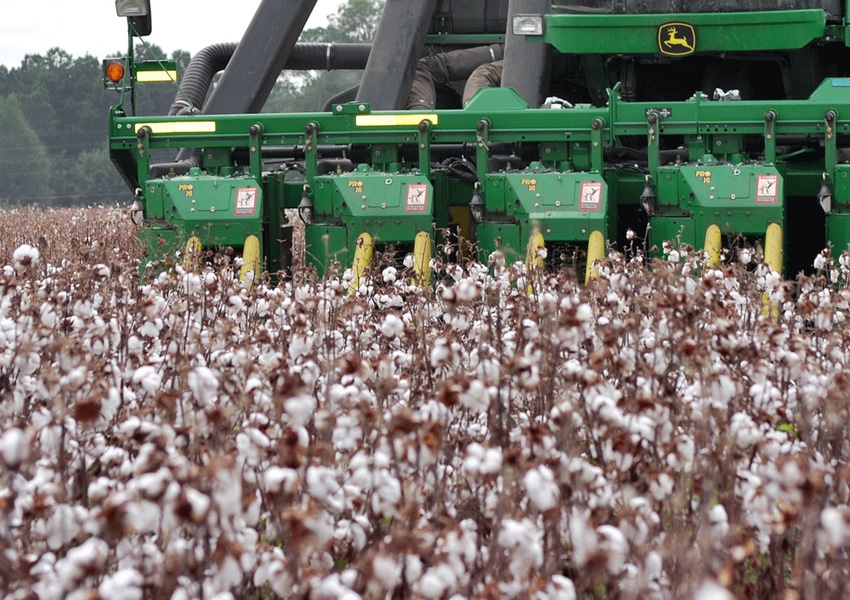
Global cotton yields are going “up and up,” but at the same time production costs are going in the same direction, presenting one of the biggest challenges facing U.S. cotton farmers.
“It takes a concentrated effort by growers to do everything possible to maintain input costs,” said Kater Hake, vice president of agricultural research for Cotton Incorporated.
Speaking at the Young Guns Cotton Tour held in Raleigh, N.C. , in mid-June, Hake said the good news for U.S. farmers is precision agriculture, conservation tillage and integrated pest management are “flagship” cost-control programs for U.S. cotton farmers.
“This gives you a real competitive advantage over the rest of the world because you can do precision everything,” Hake said. “You’ve learned how to apply product on a precision basis so you don’t waste product when you don’t need it. And you focus where you get the biggest bang for the buck. That’s a huge advantage that you have.”
Beginning in the 1990s, farmers began customizing their production practices on a field-by-field basis. “Now that we have precision agriculture, you have the ability to customize production practices for each part of the field and each zone. And each zone is getting smaller and smaller. That’s a huge advantage you have,” Hake noted.
Cotton breeders are beginning to develop stress-tolerant varieties thanks to remote sensors that allow them to measure how hot a plot is, how tall the plant is, or how fast the plant grows.
Check current cotton futures prices
“I believe in the next five years we are going to see a huge increase in cotton varieties that are more stress tolerant. Because the technologies for remote sensing for breeding are going along very rapidly and have been well adopted by the industry,” he said. “Not only do we want better varieties and the tools to do that, but you need the tools to identify what is the best variety for your land, for your property, and for your management style.”
More than 100 young farmers from all 16 cotton producing states converged on Raleigh, N.C., on June 15 for the Cotton Board’s annual “Young Guns Tour” of Cotton Incorporated’s North Carolina research facility. Tour participants were in their 20s and early 30s, and Berrye Worsham, Cotton Incorporated’s president and CEO, said they represent the future of the cotton industry. He encouraged the group to take on more active leadership roles in the cotton industry.
Brad Robb, vice president of communications for the Memphis-based Cotton Board noted that the median age of farmers is 56 to 57, and this older generation will soon be retiring and turning over the operations to their children. He said it is critical that the new generation understands and appreciates the research and promotion work of Cotton Incorporated.
Want access to the very latest in agriculture news each day? Subscribe to Southeast Farm Press Daily. It’s free!
About the Author(s)
You May Also Like






